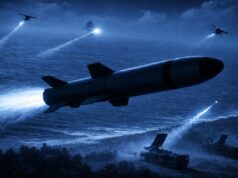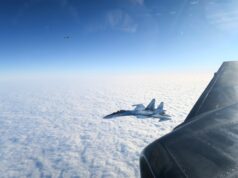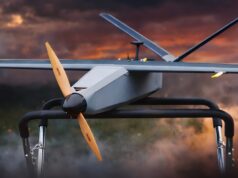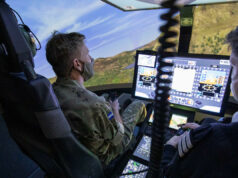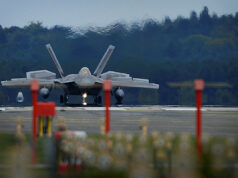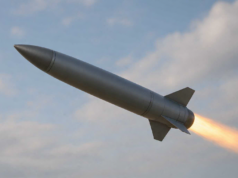Typhoon, Reaper and Tornado aircraft have been in heavy use against Islamic State over Iraq and Syria this week.
According to a press release, Reaper operations occurred on New Year’s Day with Reaper unmanned aircraft destroying a group of Islamic State fighters with one Hellfire, then using a second to knock out an armed truck.
The aircraft spotted the truck reversing in and out of cover to fire bursts from a heavy machine-gun. A flight of Typhoon FGR4s were also active over northern Mosul, where they used a Paveway IV to attack a mortar position just to the north of the city.
A Reaper patrol also over Mosul provided surveillance support to coalition air strikes on terrorist fighters, including a recoilless anti-tank gun team, and employed a Hellfire to silence a Islamic State rooftop position that was firing on Iraqi troops.
The following day, a further Reaper attack occurred in south-east Mosul, striking a pair of terrorists who were in close proximity to Iraqi forces, whilst some 20 miles south of Kirkuk, a Tornado flight destroyed a truck with a Paveway IV.
In December 2016, it was reported that the Royal Air Force is operating at its most intense for 25 years in a single theatre of operation which far outstripped the UK involvement in Iraq and Afghanistan – RAF jets have dropped 11 times more bombs (1,276 strikes) on Syria and Iraq in the preceding 12 months than they had in the busiest year of action in Afghanistan a decade previously.
The cost of the operations against Islamic State and other details of the campaign were revealed in a briefing paper. In March 2015 the MoD confirmed that the net additional costs of the military air operation would be met from the Treasury Special Reserve; while the costs of training and equipping the Iraqi and Kurdish security forces, and the provision of key enablers, would be met from the MOD’s Deployed Military Activity Pool (DMAP).
In answer to a parliamentary question in September 2016 the MoD set the costs of the operation, between August 2014 and the 31st of March 2016, at £265 million (£45 million in the 2014-15 financial year, and £220 million in the 2015-16 financial year).


